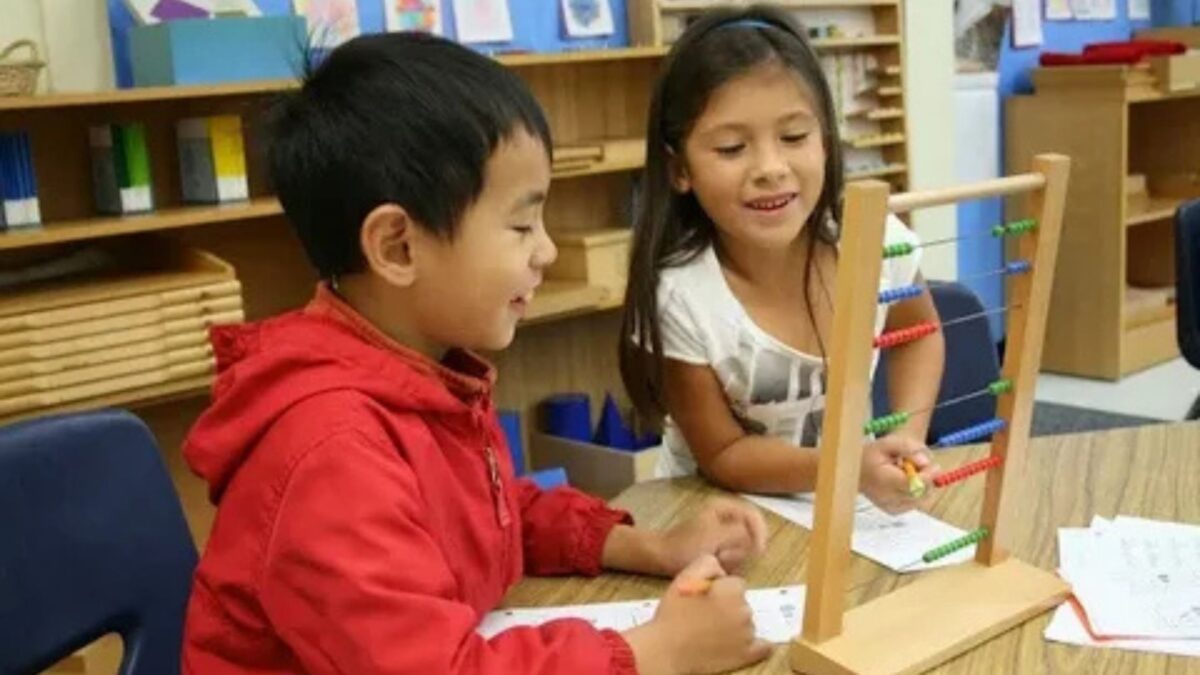Why Parents Are Choosing Montessori Elementary Schools for Their Children

More and more parents are rethinking traditional education and exploring alternatives that suit their child’s unique learning style. One option gaining widespread attention is the Montessori elementary school. Known for its hands-on learning, student-centered approach, and emphasis on independence, the Montessori model has become a go-to choice for families seeking a more holistic education. But what exactly sets Montessori elementary schools apart, and why are so many parents making the switch? Let’s understand:
1. Focus on Individualized Learning
Unlike traditional classrooms, where all students follow the same curriculum at the same pace, Montessori schools prioritize individualized learning. Teachers assess each child’s strengths, interests, and needs and then create a customized learning plan.
For example, a student excelling in math might advance to more challenging concepts while their classmates continue to work on foundational skills. This flexibility ensures that every child stays engaged and never feels held back or overwhelmed.
2. Hands-On, Experiential Learning
Montessori elementary schools emphasize learning by doing. Instead of passively listening to lectures or completing endless worksheets, students engage with materials designed to teach concepts interactively.
For instance, instead of memorizing multiplication tables, a child might use beads or blocks to visualize and solve problems. This hands-on approach helps students understand the material, making learning effective and enjoyable.
3. Encouragement of Independence
One of the hallmarks of Montessori education is fostering independence. Children are encouraged to take ownership of their learning and daily routines from an early age. This isn’t just about academics—it extends to life skills like time management, decision-making, and problem-solving.
4. Development of Social Skills
Montessori classrooms are multi-age, meaning students of different grades learn together. This unique setup creates a collaborative environment where older students mentor younger ones, and younger students learn from their peers.
This structure encourages empathy, teamwork, and communication skills. Children also gain a sense of community as they work together and celebrate each other’s achievements.
5. Focus on Intrinsic Motivation
Traditional schools often use external rewards like grades or stickers to motivate students. Montessori schools, on the other hand, emphasize intrinsic motivation. Students are encouraged to learn because they find it meaningful and satisfying, not because they work for a reward.
For example, a child might spend extra time on a science project because they’re genuinely curious, not because they’re trying to earn a good grade. This approach fosters a lifelong love of learning.
6. Well-Rounded Curriculum
Montessori elementary schools focus on developing the whole child—academically, socially, and emotionally. The curriculum often includes core subjects like math and language arts, art, music, science, and cultural studies.
This well-rounded approach helps students discover their interests and talents. Whether they’re budding artists, aspiring scientists, or passionate writers, Montessori schools provide the tools and support they need to thrive.
7. Respect for Each Child’s Pace
Every child learns differently, and Montessori schools respect that. Students can spend as much time as they need to master a concept before moving on to the next one.
This eliminates pressure to keep up with peers and ensures a deep understanding of the material. It also helps students develop patience and perseverance—skills that will serve them well in the future.
8. Emphasis on Life Skills
Beyond academics, Montessori elementary schools strongly emphasize practical life skills. Students learn to manage their time, set priorities, and take responsibility for their actions.
These lessons often extend to classroom responsibilities, like cleaning up after activities or helping with classroom organization. These experiences instill a sense of accountability and self-reliance.
9. Support for Emotional Development
Montessori schools recognize that education isn’t just about academics. Emotional intelligence is equally important. Teachers guide students in developing self-awareness, empathy, and conflict-resolution skills.
Students are taught to manage their emotions, express themselves respectfully, and resolve disagreements peacefully. This focus on emotional development creates a positive, respectful classroom atmosphere.
10. Preparation for the Future
Montessori education equips students with skills they’ll use for the rest of their lives. Whether critical thinking, creativity, or collaboration, students leave Montessori elementary schools with a strong foundation for success.
Parents often find that Montessori graduates transition easily to higher education and careers because they’ve developed a strong work ethic, independence, and a genuine love for learning.
Final Thoughts
Choosing the right school is one of a parent’s most important decisions. For many families, Montessori elementary schools offer the perfect blend of academic rigor, personal growth, and life skills. These schools create an environment where children can thrive by focusing on individualized learning, fostering independence, and nurturing emotional intelligence. It’s no wonder so many parents are turning to Montessori elementary schools to give their kids the best possible start in life.









